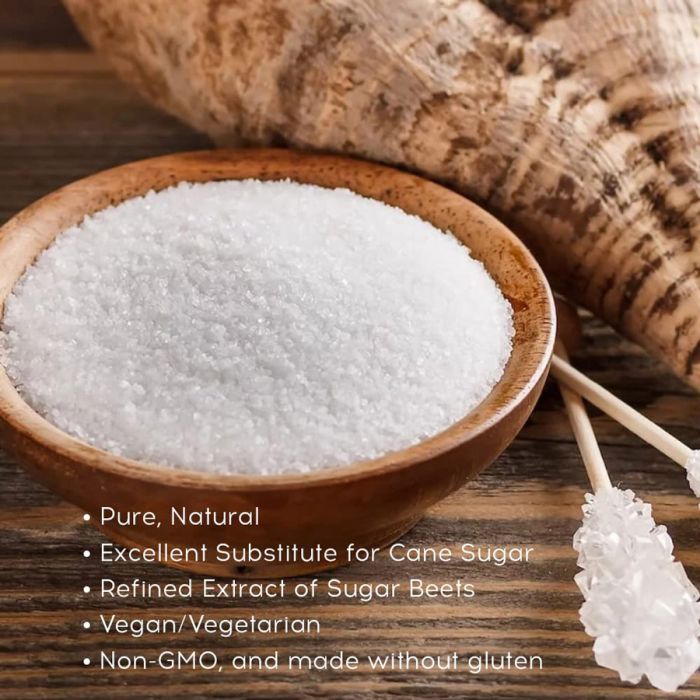Checking Out the Differences in operation and Benefits In Between Beet Sugar Vs Cane Sugar
In the cooking world, the option between beet sugar and cane sugar is not merely concerning sweet taste however includes a nuanced factor to consider of flavor, application, and effect. While both sugars originate from various plants, each undertakes one-of-a-kind manufacturing processes that discreetly influence their attributes and viability for various meals. As cooks and customers increasingly focus on both the environmental and taste profiles of their components, understanding these distinctions becomes vital. This exploration supplies insight right into just how each sugar type can best boost culinary developments.
Origins and Manufacturing Processes of Beet and Cane Sugar

Walking stick sugar, on the various other hand, comes from the sugarcane plant, a tropical lawn indigenous to Southeast Asia but currently grown in tropical areas worldwide - beet sugar vs cane sugar. The production of cane sugar starts with the harvesting of cane stalks, which are squashed to release the juice.

Nutritional Material and Health And Wellness Considerations

When contrasting the nutritional material of beet sugar and cane sugar, it becomes evident that both kinds basically supply the exact same caloric values, with about 16 calories per teaspoon and no substantial nutrient variety. Both sugars, when eaten in excess, can add to raised blood sugar degrees, a danger aspect for diabetic issues and other metabolic disorders. From a health perspective, moderating intake of any kind of sugar, whether from beet or cane, is advisable to stay clear of these possible negative results on health.
Taste Accounts and Culinary Applications
In spite of their similar chemical structures, beet sugar and cane sugar vary discreetly in flavor, which can influence their use in various cooking contexts. Walking cane sugar often lugs a hint of molasses, even in its refined type, providing a warm, caramel-like undertone that boosts baked items, coffee, and chocolate-based recipes. This slight molasses taste is particularly valued in the baking sector for adding depth to sugary foods and pastries. On the various other hand, beet sugar is identified by its extremely refined, neutral preference, making it a versatile sugar that does not modify the taste profiles of dishes. This nonpartisanship is particularly beneficial in fragile dishes, such as light pastries, lotions, and some sauces, where the intrinsic flavors of various other ingredients are planned to stand apart. Cooks and food suppliers might select one kind of sugar over the various other based on the wanted flavor result of their culinary developments.
Environmental Influence and Sustainability
While both beet and cane sugars are obtained from plants, their environmental impacts vary dramatically due to the unique methods of cultivation and handling required for each. Sugar beet farming usually includes comprehensive mechanization, which can raise fossil fuel consumption and carbon exhausts.
Additionally, the processing of sugarcane often generates a considerable amount of waste, consisting of bagasse, which, although usable as biofuel, regularly her comment is here adds to air pollution if melted inefficiently. Sugar beet handling uses more of the raw products, causing much less waste. Both markets deal with obstacles in minimizing their environmental impacts, however recurring technologies in agricultural techniques and waste administration are aiming to improve sustainability.
Economic Aspects Influencing the Sugar Market
The economic dynamics of the sugar sector are significantly affected by international market demands and profession policies. Aspects such as tolls, subsidies, and worldwide profession agreements play vital roles in forming the competitive landscape. In regions where sugarcane or sugar beet manufacturing is subsidized, producers may have an economic advantage that allows them to offer reduced costs on the international market. This can produce differences in productivity and market access for manufacturers in nations without such aids.
In addition, fluctuations in worldwide need for sugar, influenced by nutritional patterns and industrial usage in food, straight influence rates and manufacturing degrees. a knockout post beet sugar vs cane sugar. Weather additionally play a pivotal duty, as they can considerably impact plant returns and, subsequently, the supply chain. This irregularity presents a degree of economic uncertainty that can visit this web-site cause financial investment volatility in sugar manufacturing industries, influencing decisions from planting to market method
Final Thought
To conclude, both beet and cane sugar have one-of-a-kind top qualities that match various culinary requirements. While cane sugar conveys an abundant taste perfect for enhancing baked goods, beet sugar's nonpartisanship is excellent for lighter dishes. Nutritional similarities regardless of, their distinctive manufacturing processes and environmental impacts add complexity to the choice between them. Thus, recognizing these distinctions aids cooks and customers make notified decisions that align with their health and wellness, culinary, and honest preferences.